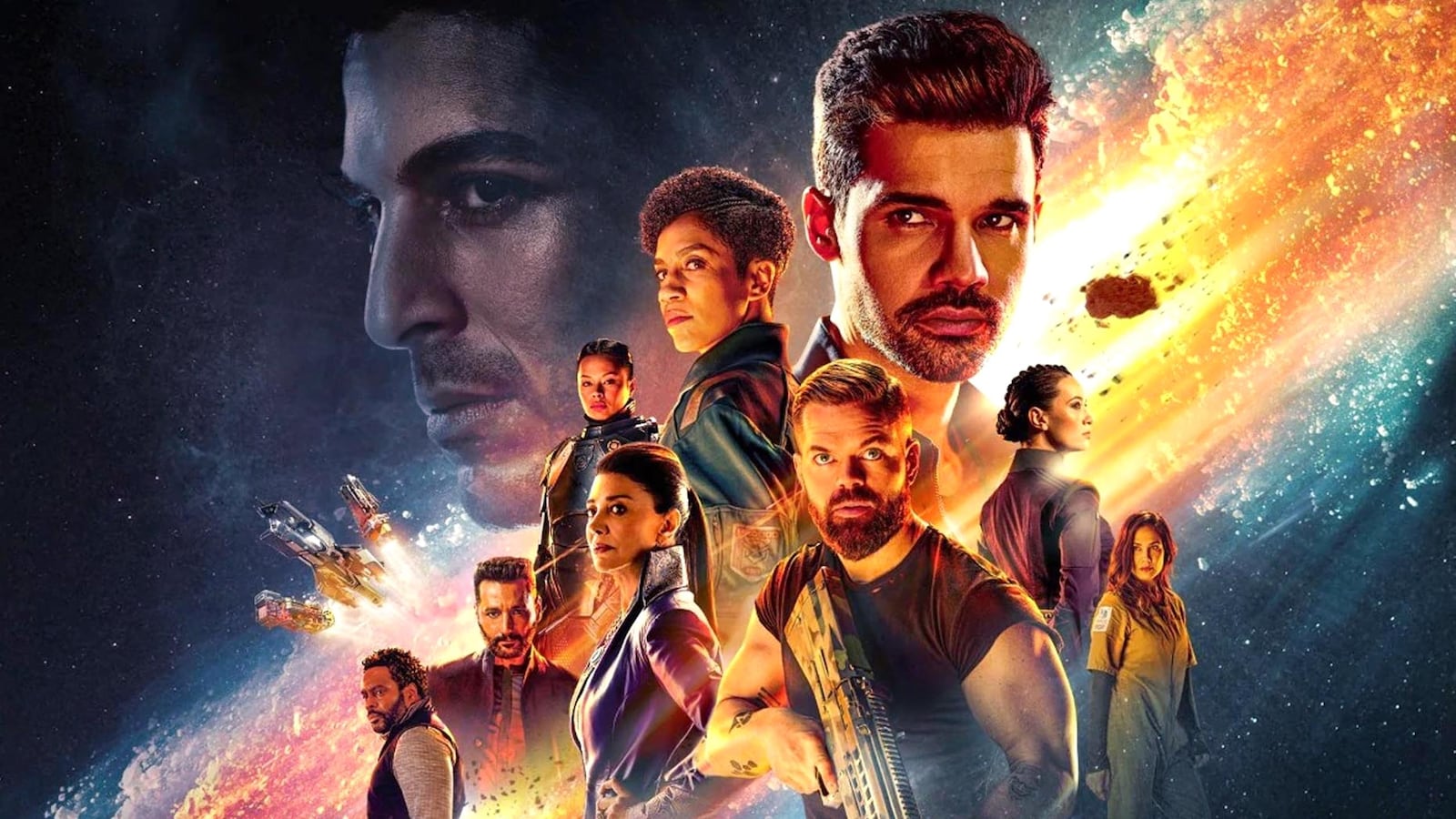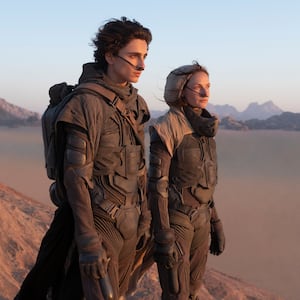Nailing a TV finale is no easy feat—just look at Lost’s oft-mocked ending and the disappointing disaster that was Game of Thrones’ coda. But with its sixth and final season, The Expanse is the rare genre series that pulls it off.
Amazon Prime Video’s sci-fi epic began wrapping up its final batch of episodes on Dec. 10, and they’re among the series’ strongest and tightest in both pacing and plot. That’s not too surprising, considering the first five seasons’ ability to nimbly and faithfully adapt James S.A. Corey’s beloved series of novels. But this final stretch had its own challenges; namely, a shortened season that had only six episodes to tie up the conflict between Earth, Mars, and the inhabitants of the Belt, plus cover the more fantastical elements tied to the alien protomolecule and the interstellar gate system it opened.
Last season, Marco Inaros (Keon Alexander) took advantage of all that conflict by organizing his Belter Free Navy and pummeling Earth with asteroids, leaving the planet to slowly die. Season 6 picks up with the dark aftermath of that attack and the effort to fight back against the increasingly powerful Inaros, centering on the crew of the spaceship Rocinante as they navigate war and politics. While much of the show has been driven by the protomolecule and its implications, the backbone of The Expanse is its nuanced look at inequality and power. It’s a political show done right, and much of Season 6 explores how an extremist like Inaros could thrive in a frayed political climate, and how wars can’t end by bullets alone. Somehow it manages to be entertaining at the same time.
Throughout its run, The Expanse managed to avoid many of the excessive and indulgent whims of prestige TV. There was no big stunt casting or quirky side excursions, but rather an emphasis on direct and efficient storytelling. The world feels lived in—the zero gravity effects, space battles, and little touches of life in the future remain stunning—and the actors approach the world with a grounded touch that adds more drama than any big, heavy-handed monologue could.
Despite the life-or-death stakes, Season 6 still makes time for the intimate interactions of the Rocinante crew, with each actor getting quiet moments to shine. Central protagonist James Holden (Steven Strait) at times feels like he’s sidelined in the first half of the season, but pulls off a powerful turn in the back half. Cara Gee’s Belter pirate Drummer, who steadily became one of the show’s central threads, gets a satisfying arc to close her story. And others, like Amos (Wes Chatham) and United Nations Secretary-General Chrisjen Avasarala (Shohreh Agdashloo), remain scene-stealers; the latter’s propensity for eloquent cursing never gets old.
There are some clear nods to this season being the end, including a barrage of cameos from past regular and recurring characters. A few of them briefly stop to reminisce on the incidents that set off the conflicts at the show’s start, and they manage to fit naturally into the story, demonstrating character growth rather than feeling like cheap callbacks.
The shortness of the season, however, does leave a sense of wanting more. If only there were more episodes to look at the implications of these events from a wider scale. If only some of those cameos were extended. One more of the excellently executed space battles would be cool to see. For a show so expansive in its universe, there is still a desire to see more. Even so, the efficiency of the storytelling—not simplicity, just efficiency—keeps most of the consequences in view while propelling the story forward; a lesser handling would leave many of the side plots aimless or take focus away from the bigger picture.
On a meta level, this final season is a fantastic feat for a show that had to fight to stay alive. Canceled after three seasons at SyFy, The Expanse found a new home at Amazon that allowed it to adapt the second trilogy of Corey’s series, and the show’s writing and production only got better from there. It’s unclear what’s next for The Expanse—Season 6 works in elements from a novella that sets up the last trilogy of novels, so even though this is the final season, it may not be a total end. Regardless, it’s a strong conclusion to what has consistently been one of the smartest, most ambitious series on television.







